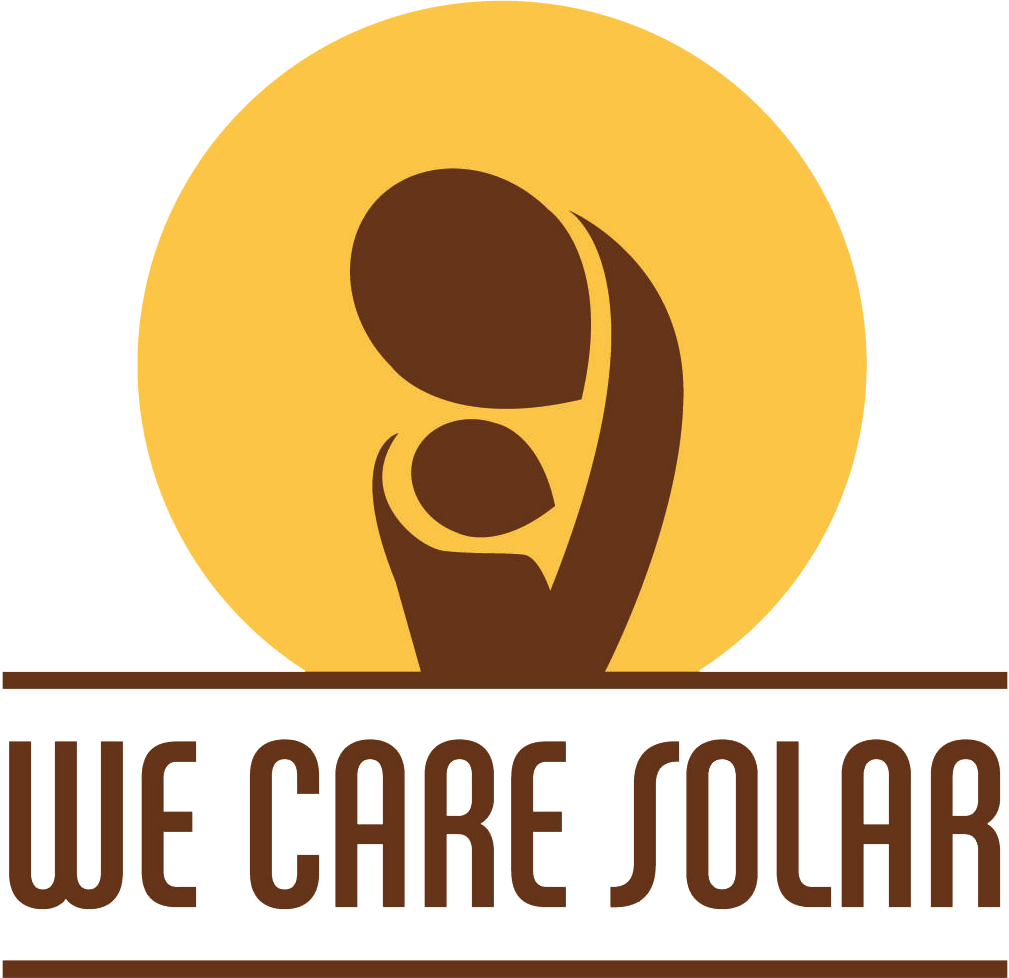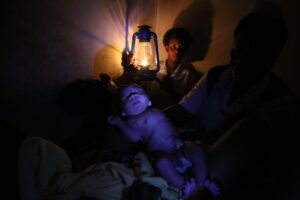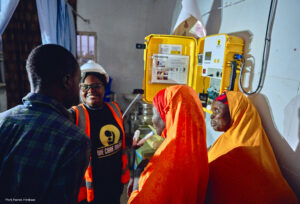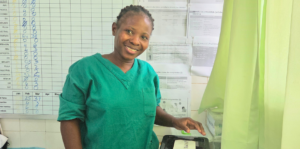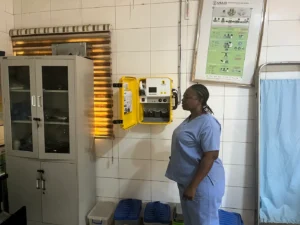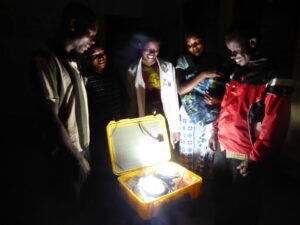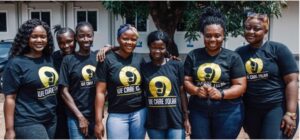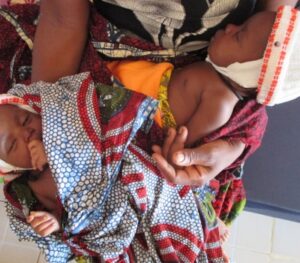 A pregnant woman in rural Tanzania has little choice about the conditions where she will deliver. Birth complications can be life threatening. More than half the time, a baby is born in the darkness of night in an area far from grid power. If a midwife has inadequate lighting, she might delay treatment until morning when sunlight is available. At night, she may miss important details during a medical examination that can help her make a good decision. If her phone isn’t charged, she can’t call for an ambulance. Equipping health clinics with appropriate technology and essential infrastructure invigorates the facility, motivating health workers to do their best and encouraging community members to come for care.
A pregnant woman in rural Tanzania has little choice about the conditions where she will deliver. Birth complications can be life threatening. More than half the time, a baby is born in the darkness of night in an area far from grid power. If a midwife has inadequate lighting, she might delay treatment until morning when sunlight is available. At night, she may miss important details during a medical examination that can help her make a good decision. If her phone isn’t charged, she can’t call for an ambulance. Equipping health clinics with appropriate technology and essential infrastructure invigorates the facility, motivating health workers to do their best and encouraging community members to come for care.
We Care Solar’s Suitcases have been installed in 90 health facilities in the Shinyanga District in Tanzania between January 2016 – April 2017. We are now working to equip an additional 100 health facilities in 2018 in other districts in Tanzania with our reliable solar powered medical lights, fetal Doppler and phone charging.
Zainabu, a soft-spoken 23-year-old mother of three compared the experience of a hospital birth with the experience of giving birth to twins at the local health facility equipped with a Solar Suitcase. “I gave birth to my first child at Shinyanga Regional Referral Hospital. I had eclampsia. My husband first brought me to the local clinic on the back of a bicycle—our home is a 15-minute ride away. When I got there, the nurse saw the symptoms—my swollen feet, my whole body was swollen and I became very weak.” When she says ‘swollen,’ she motions as if she is holding an invisible watermelon between her hands. “They sent me to another, better stocked dispensary not far away, who referred us to the district hospital. We went by public means (a bus ride lasting more than two hours) to reach Shinyanga Regional Referral Hospital.” Zainabu stayed under the care of the regional hospital for a week before giving birth via a caesarean section, and then remained there another nine days.
Eclampsia is one of the most serious complications of pregnancy, hallmarked by elevated blood pressure, and constriction of the vital blood vessels to the brain, liver, kidneys, and uterus. It can cause life-threatening seizures and a cessation of blood flow to the uterus. For both mothers and their unborn babies, the consequences are perilous.
After her experience at the hospital and with eclampsia, Zainabu was determined to have a birth closer to home. She describes birthing her twin daughters – Doto and Kulwa- at the local health clinic. Though she was unaware that she was carrying twins, she looked forward to having a healthy birth under the beam of the Solar Suitcase lights. “I wanted to deliver in this facility because I was afraid I would have the same problem as the first time. I hated the clenched teeth and feeling numb – resulting from the eclampsia. But this time I felt OK because I didn’t have any of the symptoms – no swelling. I came to ANC [prenatal care] six times during the pregnancy.”
Zainabu continues to describe her delivery: “They were born on the 10th of December. My husband borrowed a piki-piki motorbike from the neighbor and we went together with my mother-in-law. It was night when we reached the clinic. When I got off the motorbike I could see the light from the dispensary—it was the only light around. The solar lighting made [the facility] more comfortable, but [labor] was much more painful than the first one. I had back-pain, stomach-pain, and no appetite. I was in labor for 18 hours, finally delivering in the morning. I didn’t even know that I was about to have twins! First Kulwa came out. The midwife put Kulwa to my chest and under the solar light she examined me, and realized there was more to come. After five minutes the pain started again and then came Doto.” Zainabu is grateful that her midwife had adequate lighting for this special delivery of twins and that the night she spent in labor at the clinic was made brighter and safer by the Solar Suitcase LED lights.
